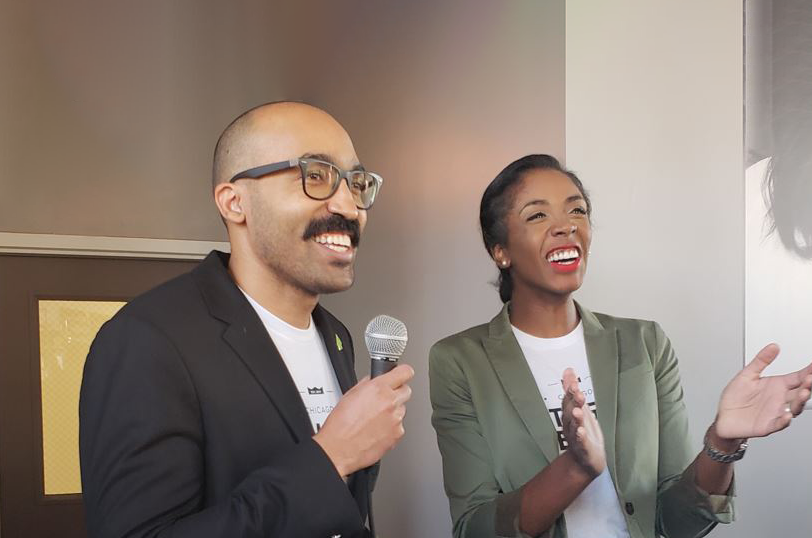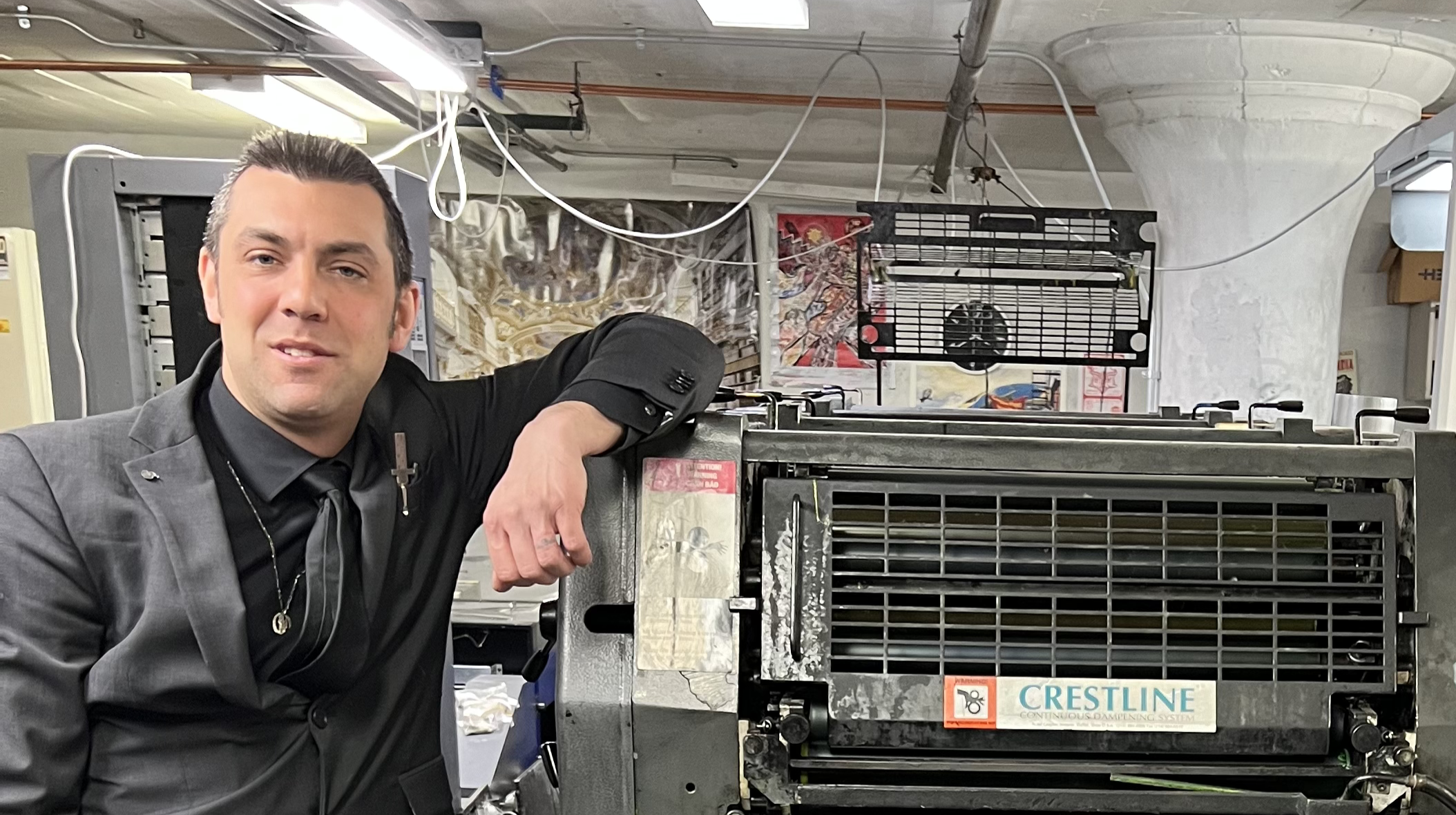South Shore locals, Jennifer and Cory Barnes, have both dedicated their early careers as educators to working with young people in Chicago. Jennifer taught in the Chicago Public Schools and Cory coordinated the Black Cultural Center at DePaul University. While participating as mentors in the One Summer Chicago program several years ago, Jennifer and Cory saw first-hand the impact of job training and employment opportunities on the lives of local youth. The couple realized their shared dream to create a greater impact on the young African American people in their community.
While spending time at the DePaul campus coffee shop, Cory got to know the baristas and grew interested in creating a community space around coffee in his own neighborhood. Jennifer, whose mother’s side of the family is from South Shore, knew that 71st Street had once been a vibrant commercial corridor and felt strongly about helping to revitalize the area.
After learning about a grant opportunity through a City of Chicago program that provides grants to small business owners to develop commercial corridors on the South and West Sides of Chicago, Jennifer and Cory applied for and received funds to build out a coffee shop and community space. In January 2019, Jennifer and Cory opened South Shore Brew, intentionally using a place-specific name, as part of their mission to reflect and inspire their neighborhood. As Jennifer describes, the café is a melting pot, a refuge, and a gathering space for the community. Adorned with paintings of influential African Americans from Chicago, South Shore Brew pays homage to the rich culture and history of the South Side. Most importantly, as envisioned by its founders, the café provides stable employment and job training for local youth ages 17–24.
2020 has been a rollercoaster year for the young venture. When the COVID-19 restrictions took effect in March, South Shore Brew was forced to shift into grab-and-go operations. Without the indoor space available for community meetups and dine-in, revenues dropped and keeping up with rent and payroll costs grew challenging. In June, when the George Floyd protests sparked a renewed national conversation around racial inequality, the coffee shop experienced a wave of demand from Chicagoans looking to support black-owned businesses.
In 2020, Allies for Community Business provided the business with a loan for working capital, which has helped smooth out payroll costs and even expand the café menu, Jennifer says. On a daily basis, Jennifer feels the challenge of running a small business, but always reminds herself to “stay the course.”






